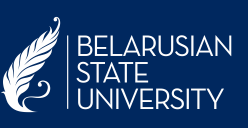
 |
Ïåäàãîãèêà èíôîðìàòèêè |
PEDAGOGY OF COMPUTER SCIENCE |
ISSN 2708-4124 |
|
APPLICATION OF NEURAL NETWORKS TO INCREASE LEARNING EFFICIENCY V.V. Kazachonak FULL TEXT: PDF (Rus) Abstract The possibilities of neuropedagogy in the modern conditions of ICT development are analyzed and the organizational and pedagogical conditions for increasing the effectiveness of the learning system based on neural networks are determined: the selection and assignment of the main characteristics of the student model, a clear formalization and construction of the ontology of the subject area. Based on the most important provisions of neuropedagogy, recommendations have been formulated to increase the effectiveness of training, including: 1) attention, 2) active interaction, 3) return by mistake and 4) consolidation (transition from a slow, conscious, effort-intensive thought process to a fast, unconscious, automatic mental work).
Key words Neuropedagogy, neural networks, educational innovations, learning efficiency. Received: 03/10/2020; accepted for publication: 04/15/2020. For citation: ________________________________________ Kazachonak V.V. Application of neural networks to increase learning efficiency. Electronic scientific and methodological journal “Pedagogy of computer science”. 2020;2. Http://pcs.bsu.by/2020_2/5ru.pdf Content is available under license Creative Commons Attribution-NonCommercial-ShareAlike 4.0 International License. About the authors:
References 1. Zakharov G.V. Neyrosetevaya pedagogika kak novyy podkhod k teoreticheskoy pedagogike [Neural network pedagogy as a new approach to theoretical pedagogy]. Nauchnyy forum: Pedagogikaipsikhologiya: sb. st. po materialam XVIII mezhdunarodnoy nauchno-prakticheskoy konferentsii. Moscow: Izd. «MTSNO», 2018;5(18):17–22. (In Russian) 2. Bazhanov V.A., Shkurko YU.S. Sovremennaya neyronauka i obrazovaniye: novyye argumenty v pol'zu starykh priyemov [Modern Neuroscience and Education: New Arguments for Old Techniques]. Pedagogika. 2018;8:29–38. (In Russian) 3. Tarasov A. Nejrootkrytiya menyayut pedagogiku [Neuro discoveries change pedagogy]. [Electronic resource]. Zdorov'edetej – Child Health, 2008;3. Available at: http://zdd.1september.ru/article.php?ID=200800312 (In Russian) 4. Fedyaev O. I. Prognozirovanie ostatochnykh znanij studentov po otdel'nym distsiplinam s pomoshh'yu nejronnykh setej [Prediction of residual knowledge of students in certain disciplines by neural networks]. Izvestiya YUFU. Tekhnicheskienauki – IzvestiyaSFedU. Engineering Sciences, 2016;7:122–136. DOI: 10.18522/2311-3103-2016-7-122136 (In Russian) 5. Kazachenok V.V. Primeneniye neyronnykh setey v obuchenii [The use of neural networks in training]. Informatika i obrazovaniye. 2020;2:41–47. (In Russian) 6. Valdher F., Valter K. Didaktika i praktika. Idei i metody dlya prepodavaniya v VUZakh [Didactics and practice. Ideas and methods for teaching at universities]. Stuttgart, Schaffer-Poeschel Verlag, 2009. 101 p. (In Russian) 7. Kazachenok V.V., Mandrik P.A. Sistema distantsionnogo dopolnitel'nogo obucheniya shkol'nikov pri fakul'tete prikladnoy matematiki i informatiki BGU [The system of distance learning for students at the Faculty of Applied Mathematics and Informatics of BSU]. Vysheyshaya shkola. 2015;6:23–26. (In Russian) 8. Rasinsky P. Sravnitel'nyj analiz tselej obrazovaniya v nashej strane v 1950-e gody XX vekai v nyneshnee vremya [A comparative analysis of the goals of education in our country in the 1950s of the 20th century and at the present time]. [Electronic resource]. Available at: https://rossaprimavera.ru/article/b76e06e9 (In Russian) 9. Turginbaeva A.N., Abdrimova A.A. Innovacii v sfere obrazovaniya [Innovations in education]. Nauchnyj forum: Innovatsionnayanauka. Sbornikstatej po materialam IV mezhduna-rodnojzaochnojnauchno-prakticheskojkonferentsii [Science forum: Innovation Science. Proc. 4th Int. correspondence scientific-practical conference]. Moscow, MTSNO, 2017;48–54. (In Russian) 10. Karelov S. Kakpovysit' ehffektivnost' obucheniya [How to increase the effectiveness of training]. [Electronic resource]. Available at: https://medium.com/@sergey_57776/êàê-ïîâûñèòü-ýôôåêòèâíîñòü-îáó÷åíèÿ-b193e8dc7048 (In Russian) 11. Dehene S. Apprendre! Les talents du cerveau, le defi des machines [Learn! Talents of the brain, the challenge of machines]. Paris: Odile Jacob, 2018. 384 p. (In French) 12. Nejrofiziologiya. Nejropsikhologiya. Nejropedagogika. [Neurophysiology. Neuropsy-chology. Neuropedagogy]. [Electronic resource]. Available at: http://msk.treko.ru/show_article_1738 (In Russian) 13. Struktura IKT-kompetentnostiuchitelej. Rekomendatsii YUNESKO [UNESCO ICT com-petency framework for teachers]. Moscow, UNESCO Institute for Information Technologies in Education, 2018. 70 p. Available at: https://iite.unesco.org/wp-content/uploads/2019/05/ICT-CFT-Version-3-Russian-1.pdf (In Russian) 14. Zachemnejroset' sledit za studentami [Why does a neural network monitor students]. [Electronic resource]. Invest-Forsajt – Invest Foresight, 2018. Available at: https://www.if24.ru/zachem-nejroset-sledit-za-studentami/ (In Russian) |